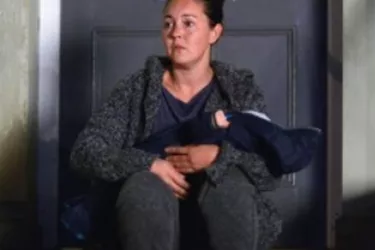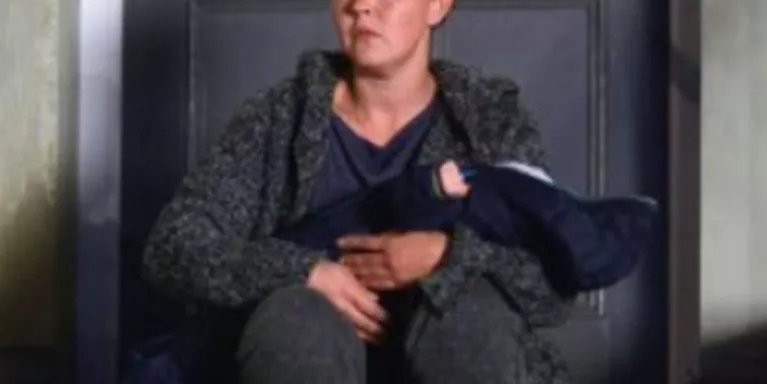Making mental health drama
Jenni from Mind's Media team gives a behind-the-scenes look at how she helps to shape accurate mental health portrayals on TV - with a focus on Stacey's EastEnders' story.
When I got the initial email from the EastEnders team around a year ago about the fact they were going to embark on a postpartum storyline I was excited. But as with any storyline this was mixed with trepidation.
- Were they going to do the story justice?
- Was the diagnosis going to be an ‘excuse’ to be badly behaved?
- Would the character Stacey fall ill overnight and then wake up a week later (after taking her meds) perfectly well?
I needn’t have worried. From that initial email: a massive nine months before we were due to see the story on screen, to now, as Stacey is just settling back into life at home, the whole experience has been a really positive tale of working collaboratively. Not just with the EastEnders team but with other charities and also some amazing women with lived experience who have kept the character thinking and acting realistically.
"Soaps and dramas tackling mental health conditions can encourage people to seek help for their own problems."
Even when there have been twists and turns in the story that we feared would add to the stigma around this condition our concerns have been listened to and very often changed.
The fact that this storyline has played out over a matter of months rather than weeks (or even days!) is almost unheard of in ‘Soapland’ which has its very own concept of time.
A week in ‘Soapland’ can contain as much action as an entire year in normal life.
"The whole purpose of the media advice service is to work behind the scenes to improve portrayals."
The research team as well as directors and writers actually left Albert Square to go and have a look at a real life Mother and Baby Unit. They even built a replica on set, knowing how important it was to get it completely right. I have also fielded questions about tiny details such as curtains and MBU kitchens.
We have of course also offered our own unique perspective of what it’s like to live with postpartum psychosis. Our amazing media volunteers Eve and Kathryn have fed back on scenes for us as well as meeting with Lacey Turner, the actress who plays Stacey. We held a session with her and other members of the production team where experiences were shared and no question was off limits.
Postpartum psychosis is a fairly rare condition affecting around 1 to 2 women in every hundred and this time last year I can safely say that it was something that very few people would have known about. They may have only read about it in association with a tragic incident in the paper. The BBC did some audience research around mental health before the story aired and postpartum psychosis had the least recognition out of a number of conditions asked about.
"We actually tackled 25 separate storylines for UK soaps and dramas over the past twelve months."
So by supporting this storyline we wanted to raise awareness, encourage people to get help and bust a few myths about the condition (women with the condition are dangerous or bad mothers, it’s untreatable and you never recover and babies often get taken away).
I hope that following the amazing storyline and the amount of press coverage around the story that many more people would recognise the symptoms and even seek help if appropriate. We also know from our own research that soaps and dramas tackling mental health conditions can encourage people to seek help for their own problems.
"It’s very rare that our work gets the kind of amazing coverage this story got."
Of course this is not the only storyline we have worked on, just the biggest (and the longest!). We actually tackled 25 separate storylines for UK soaps and dramas over the past twelve months.
The whole purpose of the media advice service is to work behind the scenes to improve portrayals and it’s very rare that our work gets the kind of amazing coverage this story got.
Rather than wanting a rest we are hoping that this year will see many more mental health storylines in our favourite TV programmes with some of our best loved characters!


Information and support
When you’re living with a mental health problem, or supporting someone who is, having access to the right information - about a condition, treatment options, or practical issues - is vital. Visit our information pages to find out more.
Share your story with others
Blogs and stories can show that people with mental health problems are cared about, understood and listened to. We can use it to challenge the status quo and change attitudes.

















